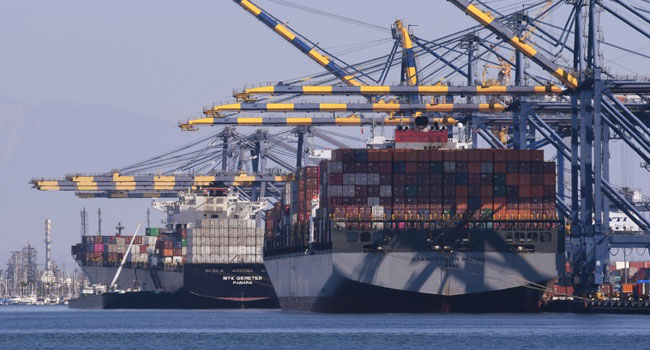In a striking economic development, Nigeria has witnessed a substantial increase in capital importation, surging by an impressive 210.16% to reach $3.376 billion in the first quarter of 2024. This significant rise, reported by the National Bureau of Statistics (NBS), marks a remarkable rebound from the $1.088 billion recorded in Q4 2023 and surpasses the $1.132 billion reported in Q1 2023 by 198%.
According to the NBS report, Portfolio Investment dominated the inflows, accounting for $2.075 billion (61%), followed by Other Investments with $1.181 billion (35%). Foreign Direct Investment (FDI) contributed the least with $119 million (3.53%) of the total capital imported during the quarter.
The Banking sector attracted the highest inflow of capital, totaling $2.067 billion (61.24%), underscoring its pivotal role in Nigeria’s economic landscape. The Trading sector followed with approximately $494 million (14.66%), while the Production/Manufacturing sector received around $192 million (5.68%).
Geographically, the United Kingdom emerged as the leading source of capital importation into Nigeria, accounting for $1.806 billion (53.49%) of the total, followed by the Republic of South Africa with $582 million (17.25%) and the Cayman Islands with $186 million (5.52%).
Among Nigerian states, Lagos state retained its position as the top destination for capital importation, attracting $2.782 billion (82% of total capital imported), followed by Abuja with $593 million (17.58%), and Ekiti state with a marginal $0.01 million.
In terms of financial institutions, Stanbic IBTC Bank Plc emerged as the leading recipient of capital importation, receiving $1.257 billion (37.24%), followed by Citibank Nigeria Limited with approximately $548 million (16.22%), and Rand Merchant Bank Plc with around $529 million (15.66%).
This surge in capital importation reflects growing investor confidence in Nigeria’s economic prospects and underscores the country’s attractiveness as an investment destination. As the nation continues to implement reforms aimed at improving its business environment and attracting more foreign investments, stakeholders remain optimistic about sustained economic growth and development in the coming quarters.






